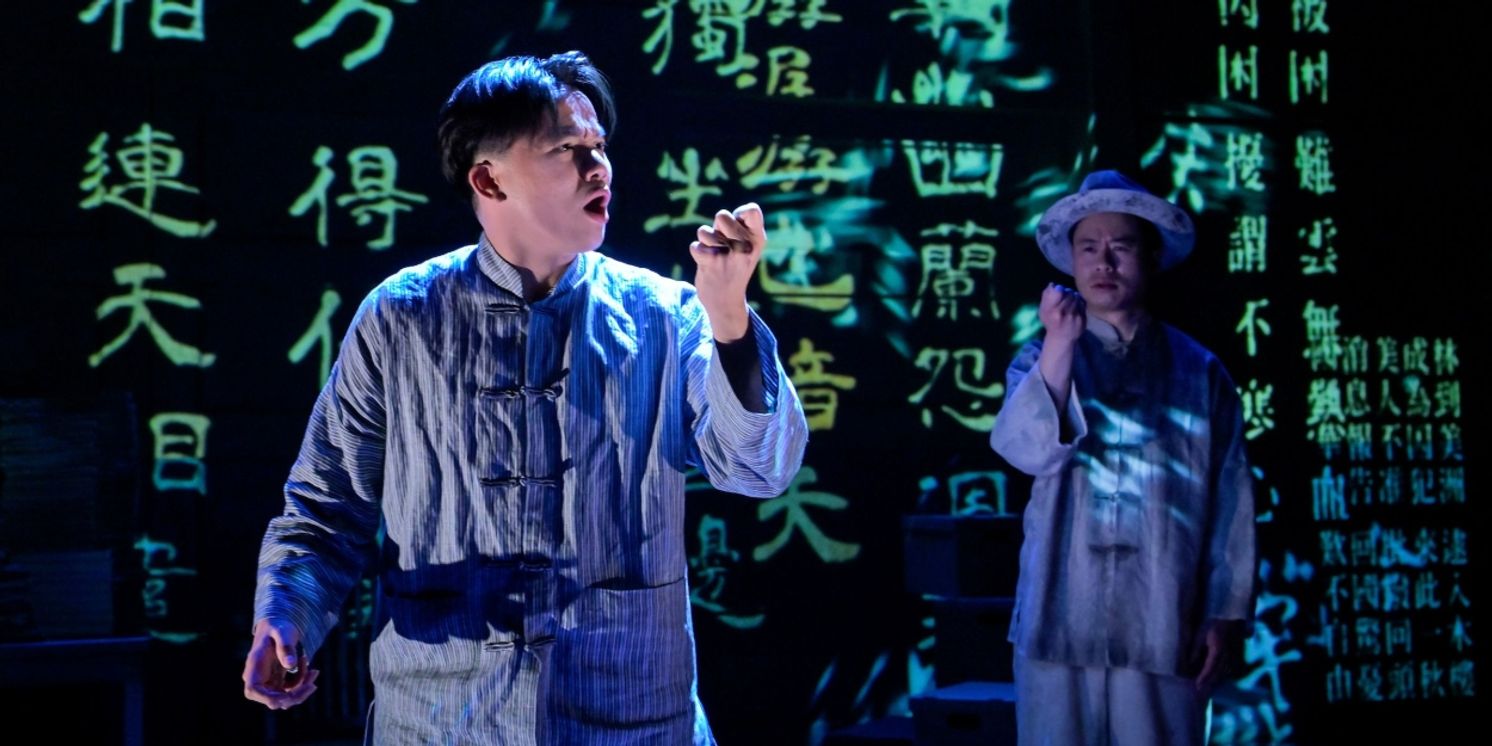Review: THE FAR COUNTRY at Berkeley Repertory Theatre
Against the backdrop of the racist Chinese Exclusion Act (1882-1943), the compelling story of one group of Chinese immigrant’s perseverance unfolds.

When first-time visitors arrive in San Francisco, they often prioritize a visit to Chinatown, while Angel Island seldom makes it onto their must-see list. I get it. Chinatown is now a tourist hub for shopping and dining, contrasting sharply with Angel Island's history as an Immigration detention station at the turn of the 20th Century. Similar to the teen character Moon Gyet in Lloyd Suh's The Far Country, hundreds of thousands of Chinese detainees endured horrific conditions during their prolonged detainment on the tiny rock of an island in the middle of the bay. San Francisco lay just beyond their reach. Unlike their fellow European immigrants, Chinese immigrants endured horrendous interrogations and cramped living conditions, often for years, all for a chance at entry into the United States. But it is there in the crucible of Angel Island that tenacity and resilience are forged and, unexpectedly, where this play finds its heart. Playing now through April 14 at Berkeley Repertory Theatre, The Far Country should be on your must-see list.
Ideally, it should be difficult to imagine exactly what early Chinese immigrants like Moon Gyet (Tommy Bo is a force to be reckoned with in this role) endured at the hands of white, Euro-centric America at the turn of the 20th Century, but it is not.
We’ve all seen the news stories about how little regard the dominant culture has for brown-skinned migrants and people of color. And we’ve seen how racism still leads to violence against Asian Americans all across the country. Still, there’s something chilling about seeing how little the US has changed since Lloyd Suh’s turn of the 20th century epic drama.
Moon Gyet is just a teen in Taishan, China when his impoverished mother, Low (Tess Lina is fierce and loving), finds herself at the mercy of her circumstances when she agrees to pay a Chinese man named Gee (Feodor Chin is wonderful) to take her son to America. Tales of gold and opportunity have reached even her small village.
Gee has his eyes set on the future. He’s managed to persuade US authorities on Angel Island of his American birth and will pass Moon Gyet off as his son in order to get him into the country. The price is steep, but Moon Gyet will work as an indentured servant – as his “Paper Son” - in Gee’s laundromat to cover the debt and to send money home. That is, if he can persuade the Angel Island interrogators (John Keabler and Aaron Wilton) that he is really Gee’s son.
What follows is both riveting and disturbing. Over and over and over again, Moon Gyet is peppered with questions by white interrogators intent on finding a crack in his story. They know that many of these young men have been coached on what to say and they do their level best to keep them from subverting the systemic racism that the United States has put in place.
Jennifer Chang’s directing is inspired. Within the canvas of Wilson Chin’s clever minimalist sets and Minjoo Kim’s rich lighting, she choreographs movement and sequence, blocking and drama; her artistic vision creating a cohesiveness that holds the audience through the hardest of scenes. She is aided in this effort by Erika Chong Shuch (Movement).
As the ensemble cast members – listed in the program as One (Whit K. Lee), Two (Tess Lina), Three (Feodor Chin) and Four (Sharon Shao) – move boxes across the stage, they tell the story of Angel Island to Moon Gyet, who walks across the boxes like steppingstones and climbs them like stairs as they are placed before him. Minjoo Kim’s lighting outlines figures in purples and suffuses them in dappled green. Stark white gives way to secret and shadow, then shape shifts again and suddenly the walls come alive with Chinese words. Moon Gyet is told that former prisoners/detainees carved poetry into the walls, etching their hopes and dreams, bitterness, and grief as a testament to what they endured and why.
It is a cathartic moment of beauty and hope, one that Moon Gyet seemingly relies on when, years later he goes back to Taishan to see his mother and to replicate Gee’s subversive steps - this time to take back a “Paper Wife.” Here, Suh gives us Yuen, a forthright, unabashed young woman played with wit and strength by Sharon Shao. She readily agrees to the arrangement and makes it clear to Moon Gyet that she has dreams for herself and for her future children and she is not afraid of detention on Angel Island. (One note: though Sharon Shao’s character Yuen came willingly to America, in reality many women were brought here against their will. See local Bay Area author Laila Ibrahim’s novel, “Paper Wife.”)
The Far Country is a beautiful tale that resonates with history – one that is largely unknown to most of us. It is the story of how war and poverty can and does tear families apart. Yet Lloyd Suh shows us in his magnificent play that sometimes the bonds formed from necessity can, over time, be a gift to future generations. Please put The Far Country on your must-see list.
The Far Country
Berkeley Repertory Theater (https://www.berkeleyrep.org/shows/the-far-country/)
Now through April 14, 2024
Written by Lloyd Suh
Directed by Jennifer Chang
Movement, Erika Chong Such
Scenic Design by Wilson Chin
Lighting Design by Minjoo Kim
Sound Design and Original Music by Fan Zhang
Costume Design by Helen Q. Huang
Projections by Hsuan-Kuang Hsieh
Dialect Coach, Joy Lanceta Coronel
Photo Credit: Kevin Berne
Reader Reviews

Videos

